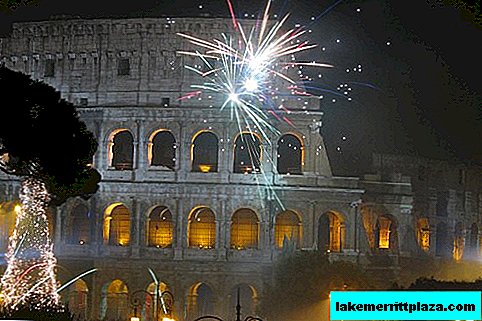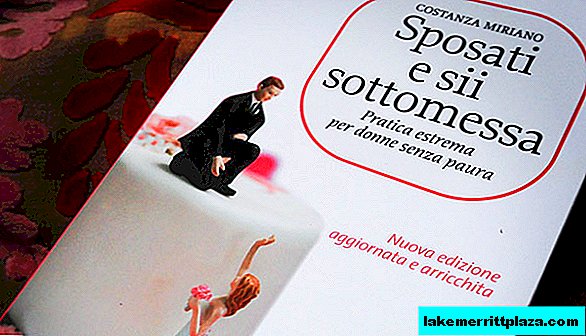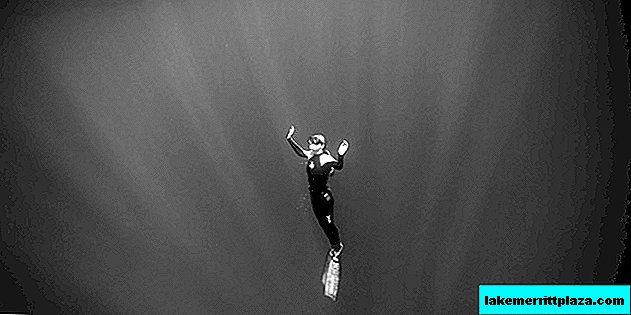In the last issue, we described the further actions of Mark Anthony to seize power for his beloved and his neat steps to “reign” in Rome. Everything would be fine, but Guy Octavius suddenly sailed from Albania.
Rather, after accepting the legacy of the late dictator, the full name of a promising guy was Guy Julius Caesar Octavian. It is under the last nomen that he will go down in history.
True, the process of adoption was delayed - and not without the help of Anthony, dissatisfied with competition. The heir to the murdered man, having talked in Campaign with Cicero and other smart people on the topic “How can we equip the Republic”, nevertheless got to Rome, where he announced his agreement with the new status of the deceased’s son, as well as grievous grief due to his death and intention fulfill all the promises of the "father".
Mark turned to full. It was scary to openly quarrel with Octavian - after all, the guy was quite popular among plebs and veterans, but the problem was that Guy, guided by good advice from the already hated Anthony Cicero, zealously increased this popularity, despite all the legal obstacles that the Roman under-tsarek hastily raised before him. For example, the extradition of Caesar’s treasury to his heir (formally never recognized - the combat bureaucracy completed its task) was refused. It will interrupt somehow, not small. Let him now try to fulfill one of the promises - to give each Roman 300 sisters, for what shisha ?!
Still fulfilled. True, for this Octavian had to sell all his family estates. But fame and the number of supporters jumped up sharply (as did Anthony's pressure).
Unable to understand why this young man behaves so deftly and blaming everything on the vile intriguer of Cicero, Mark decided to clean the rear from the other side, and manipulating various laws (as well as bribes and services, which he, being the sole owner of “Caesar’s real orders "picked up a lot) sent Brutus and Cassius (the murderers of the dictator, if someone suddenly forgot) away to Crete and to Cyrenaica (to modern Libya, that is). Himself took a promising and interesting Gaul - at the same time closer to Rome. Offended by such a situation, the servicemen gathered sympathizers from the Senate and tried to figure out what to do with the presumptuous one, but decided nothing. Cicero, realizing that he might soon accidentally crush him with a wattle fence, generally retreated from the city from sin.
At the games in July in honor of Caesar's victories over Rome, a very bright comet appeared. In general, such phenomena were considered an extremely shameful omen (and in this case superstitious citizens were not mistaken), but Octavian, who by that time had grown a beard as a sign of mourning for his father, cleverly convinced everyone who doubted that it was the deceased's soul that was actually looking at his city with the sky. Another plus one hundred points in Guy’s karma and plus two hundred to Mark’s anger, brutalized by the fact that some snotty Albanian newcomer circumvented him on the bends.
Further more. Cicero, having talked with Brutus again, returned to the city. But the conspirators nevertheless sailed away, but not at all to the place where Anthony sent them wholeheartedly, but to the eastern provinces - to gather troops in order to complete what could not be dealt with by persuasion.
Mark began to fuss and with his power recalled 4 legions from Macedonia, where Brutus had fixed himself, and also called the patricians for advice on a burning topic - whether to declare Caesar divine or not. It’s not very clear what he wanted to achieve with the last decision - With all these throwings, Anthony spoiled his reputation among practically all the broad masses of the people, but the contemporaries remembered the meeting not at all.
Seeing that for some reason Cicero was absent among those who came, Mark fell into a rage and demanded either to drag a speaker here or to burn his house - he barely managed to calm him down. Shocked by such a disposition, the figure nevertheless appeared in the Senate, but only the next day, when Anthony was not there, and burst out the first of his famous speeches, called "Filipiki" - by analogy with Athens three hundred years ago, where Demosthenes violently denounced Philip II of Macedon , father of a little more famous Alexander with the same nickname. The speech went well, but a few days later Anthony crawled out onto the podium and accused Cicero in general of everything that came to his mind - he participated in conspiracies and called on Caesar to kill (which is still somewhere close to the truth) , and tried to pit him with Pompey, and in general the infection is corrupt and the bastard is bad. Cicero from this somehow got sick, and he disappeared from the city, deciding to continue boxing by correspondence from his estate - it was safer there.
Another month the parties exchanged insulting and bad things. Mark was thinking how to hit Octavian halfway, without arousing much suspicion, and simultaneously strengthened his estate, otherwise the youth would come up with a similar brilliant idea. Octavian did not jerk directly in the direction of Anthony, but very prudently kept in touch with the very legions that his opponent had called to himself, and did not lose.
After waiting for Mark to leave to meet the troops, Guy Julius himself left the city in the direction of Campania with similar goals - to acquire his own army until the thunder struck. Anthony, having seen "his" legions, was not at all pleased. His generous offer to give each soldier 400 loyalty to each soldier was greeted with a healthy peasant laugh - Octavian offered five times as much.
Finally enraged, the dictator-loser resorted to decimation and piled 300 corpses. The fee, however, also had to be increased. Such measures did provide, albeit dubious, but still visible loyalty of the military team, although Anthony did not win the soldiers' love at all. Legionnaires were particularly offended by the fact that the executions were carried out in the presence of Mark's wife, Fulvia, according to reports, a rather vile babischi.
By the middle of autumn, 44 BC, the civil war had almost begun. Octavian gathered supporters in the north of Rome, Cassius and Brutus raised troops in the east, Anthony rushed about and gathered as many as he could, Cicero, sticking his tongue out of zeal, frantically scribbling all about Mark at his dacha.
When does the thunder strike?
Read it soon.
History Fun specifically for Italy for me.








